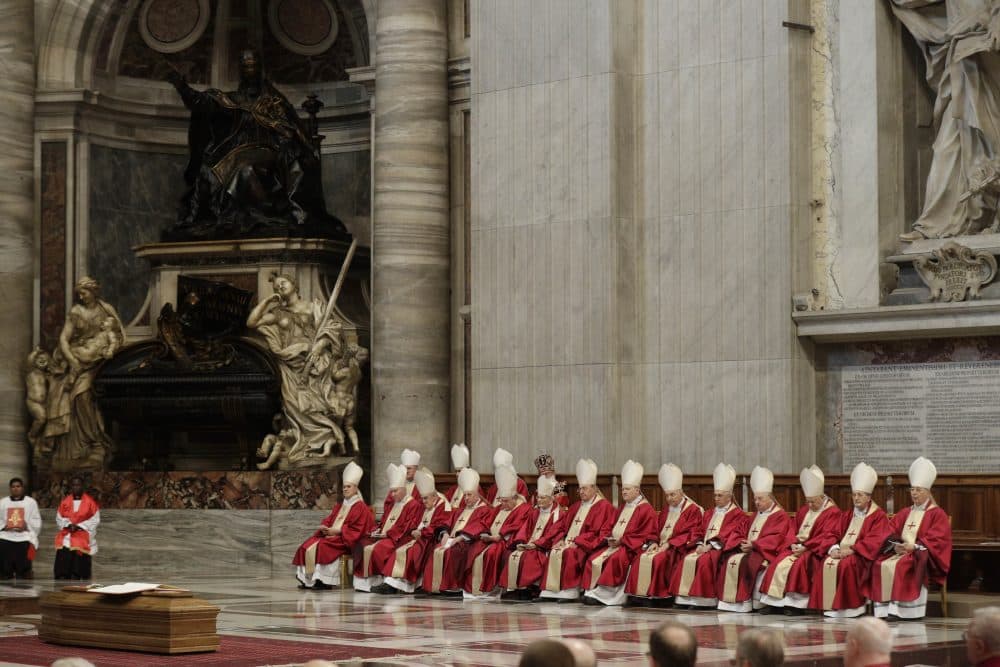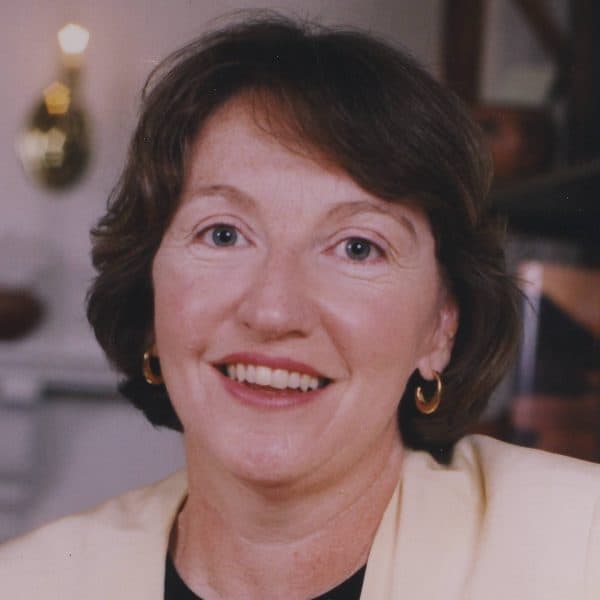Advertisement
Commentary
The Obituary Bernard Law Deserves

He is being buried today from St. Peter’s, from the heart of the Vatican, on the darkest day of the year. Pope Francis himself will bless the remains of Cardinal Bernard Law, the prelate who facilitated and covered up the crimes of predatory priests across decades in the Archdiocese of Boston.
It was not enough that the misguided men of Rome provided Law safe haven at a Roman basilica for 15 years after the depth and breadth of his obstruction of justice was exposed. They have to honor the un-indicted co-conspirator in the sexual abuse of children with a saint’s send-off in the sacred seat of the Roman Catholic Church.
It astounds the imagination, even among those of us who thought all the pope’s men had long ago exhausted our capacity for outrage.
Let’s leave it to The New York Times and The Washington Post to refuse to speak too ill of the dead, to balance the ledger with an even-handed accounting of his good deeds and bad. In Boston, Law deserves an obituary as unvarnished as his rank ambition and craven evasion of responsibility.
They have to honor the un-indicted co-conspirator in the sexual abuse of children with a saint’s send-off ...
First the disclaimers: He championed the cause of civil rights in Mississippi in the 1960s; his initiatives improved relations between Catholics and Jews from Missouri to Massachusetts; he embraced the Haitian, Hispanic and Southeast Asian immigrants who were fast replacing the Irish and Italians in the pews of Dorchester and Lowell and Lynn when he arrived in the Archdiocese of Boston in 1984. But it was less than a year later that Auxiliary Bishop John M. D’Arcy warned Law of the danger of his decision to transfer the Rev. John J. Geoghan, a serial child molester, from St. Brendan’s in Dorchester to St. Julia’s in Weston. Parishioners, D’Arcy wrote, would rightly “be convinced the Archdiocese has no concerns for their welfare and simply sends them priests with problems.” Law ignored D’Arcy and Geoghan resumed his sexual assaults on children.
"I only wish that the knowledge that we have today had been available to us earlier," Law wrote in 2001 in the Pilot when the extent of his complicity was beginning to emerge. That was a transparent lie, part of a pattern of deceit that would be Law’s undoing. In 1985, medical and legal experts had delivered a 92-page report to the National Conference of Catholic Bishops on sexually abusive priests; Law had urged that the independent study be undertaken.
How had he escaped accountability for so long? It is hard to remember now that Law was the darling of the ascendant conservative wing of the Catholic Church when he moved into the mansion on Lake Street in Brighton. When Pope John Paul II elevated the Harvard-educated archbishop to cardinal within a year, his long-shot ambition to become the first American pope seemed a credible dream to the moneyed swells with whom he mingled so effortlessly at his annual garden party.
Credit his arrogance for the overreach.
It is not only for his complicity in the sexual abuse of children that Law will answer to his God. His opposition to the death penalty and support for affordable housing masked a meanness underneath that embraced the retrograde social policies that would hurt the faithful but burnish his reputation in Rome.
In 1987, he lobbied hard against a bill to ban discrimination based on sexual orientation, calling the measure "a concerted effort to alter the way society looks at itself, looks at family and marriage, looks at human sexuality.”
In 1989, he opened diocesan churches to the antiabortion zealots of Operation Rescue to use as staging areas for their illegal assaults on women’s health clinics.
In 1990, he approved the transfer of maternity care from St. Margaret’s Hospital in a black neighborhood of Dorchester to St. Elizabeth’s in a white neighborhood of Brighton, even though more babies died every year in a 1-mile radius around St. Margaret's than died in the previous 3 1/2 years in all of Allston-Brighton.
In 1997 — even as he was paying to feed, house and defend Geoghan from criminal sexual assault allegations — he refused to pay pension benefits to 60 former priests, arguing that his obligation extended only to clergymen “in good standing.”
'I only wish that the knowledge that we have today had been available to us earlier,' Law wrote in 2001 ... That was a transparent lie ...
In 1999, he mounted a spurious campaign against two distinguished state jurists, accusing Supreme Judicial Court Justice Margaret Marshall and Superior Court Judge Judith Cowin of anti-Catholic bias. Marshall was elevated to chief justice and Cowin to associate justice of the state’s highest court despite his smear.
To the Vatican, Law remained a priest in good standing until the end, his status as a retired cardinal and archpriest of the Patriarchal Basilica of St. Mary Major reason enough to accord him the honor of today’s funeral from St. Peter’s Basilica.
It is about forgiveness, we are asked to believe. Six months before he resigned his post in Boston, Law came as close as he ever did to apologizing in a letter read to congregations throughout the archdiocese. “My credibility has been publicly questioned and I have become for some an object of contempt,” he wrote. “I understand how this is so, and I am profoundly sorry that the inadequacy of past policies and flaws in past decisions have contributed to this situation.”
It has been awhile since I consulted a Baltimore Catechism but I do remember that the sacrament of penance requires a genuine act of contrition. You can’t recite one in the passive voice.
